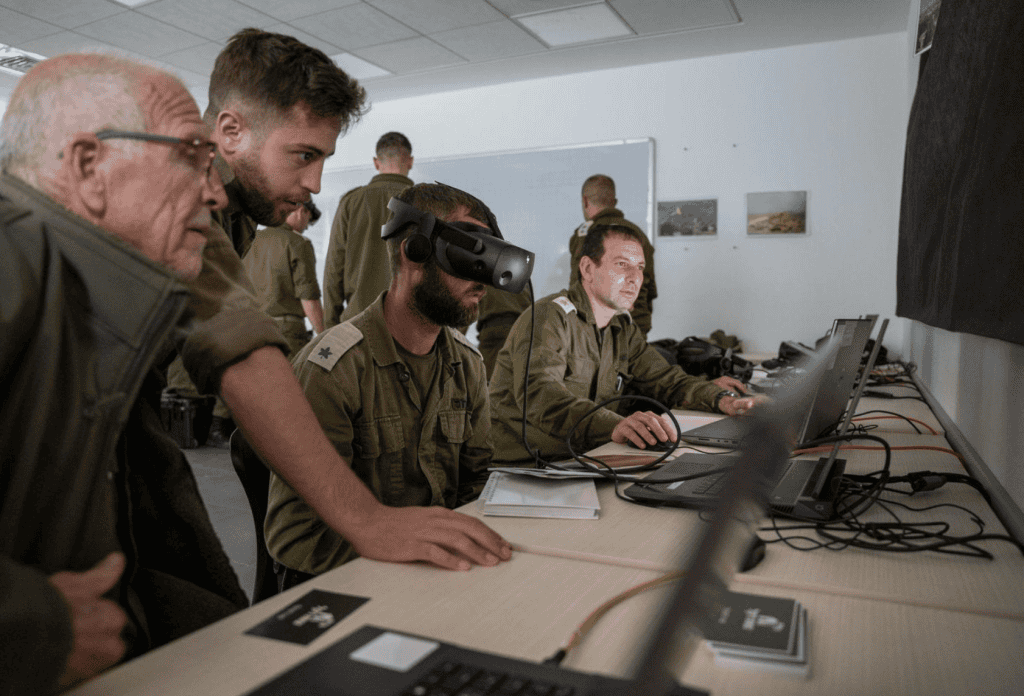
One person died in northern Israel after Hezbollah launched a barrage of rockets at Kiryat Shmona on March 27, just one day after the terrorist group targeted a military base on Mount Meron in northern Israel. Pro-Iran al-Mayadeen claimed the attack on Kiryat Shmona was in response to an Israeli air force raid that happened overnight between March 26 and March 27 and targeted a compound near al-Habbariyeh in southern Lebanon. Hezbollah routinely justifies its daily attacks on Israel as retaliation for Israeli attacks.
The IDF has continued to strike Hezbollah positions in Lebanon, including fighter jets that “struck a terrorist cell located in a Hezbollah military compound in the area of Tayr Harfa, and an additional terrorist cell in the area of Naqoura,” the IDF said. Locals in Lebanon claimed several people were killed in the airstrike.
Earlier on March 27, the IDF also said Hezbollah launched an unmanned aircraft over the border “located in the area of Rosh HaNikra in northern Israel. IDF soldiers were dispatched to check the aircraft and the incident is under review.” While it was unclear what type of UAV was found in this instance, Hezbollah has launched numerous drones at Israel since it began its attacks on October 8.
The escalation in the north comes amid a number of IDF developments. The IDF recently announced it was creating a new Mountain Brigade to secure Mount Dov and Mount Hermon. The IDF said on March 27 that it is conducting a training program in northern Israel to prepare units for “offensive plans.” The training is under Israel’s Northern Command and its leader Maj. General Ori Gordin, and it includes division, brigade and battalion commanders from regular army and reserve units. Most of the units involved were not specified, but Israel has two divisions that are responsible for securing the north, the 91st along the Lebanon border and the 210th in the Golan. The training program was led by the 36th division, which is an armored division often based in the north. The 36th played a key role in Gaza before it was sent north in January, taking with it the 188th armored brigade and Golani infantry. It left the 7th armored in Gaza to aid operations in Khan Younis.
According to the IDF, Israel’s Chief of Staff Lt. Gen. Herzi HaLevi, “presented the strategic challenges and assessments for the continuation of the war.” The training included a focus on artillery, intelligence, engineering, and the use of technology.
Gordin gave comments during the training in which he referenced the recent operation against Jama’a al-Islamiyya and discussed the Hezbollah attack on Kiryat Shmona. “We are determined to change the security situation in the north so that the residents can return to the north safely and with a sense of security. On the other hand, we are striking Hezbollah very powerfully and strongly, the Hezbollah organization, and also causing a lot of damage in the area where it operates. If we understand that we need to act, we will act tonight as well, and the readiness is there.”
The IDF says that the Israeli Air Force is also resuming a training program that was paused following October 7 and after five months of intense action in Gaza and on other fronts. The air force has often kept many of its assets reserved and ready in the north for carrying out strikes in both Lebanon and Syria. Now, a new training program for 2024 has been approved and will “focus on increasing the IAF’s readiness for war in the northern arena and in other arenas during prolonged combat.”
The IDF says the training will include preparation for regional threats. “The framework of the training will include massive, long-range strikes, flying deep into enemy territory, and surprise exercises will be held for the various units.” The IDF did not specify the squadrons involved but statements seem to suggest preparation for more escalation in the north.







